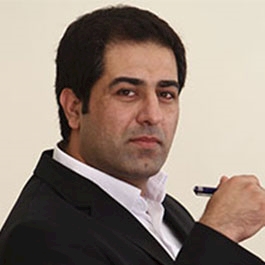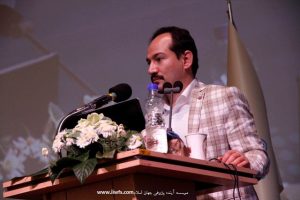The Opening of the Western Coast Front against Ansar-Allah and the future of the crisis of Yemen
A Conversation with Reza Mirabian,
Expert and former Ambassador of Iran
The Houthis’s (Ansar Allah) opponents have recently attempted to seize the important harbor of al-Hadida and, in the shadow of this victory, make Yemen’s fate as much as they like. In fact, military strikes were carried out on four main axes, Jizan, Al-Jawf, Taiz and the West coast to take the first step to occupy coastal areas, and then move towards Sanaa and Saada, and with the siege of al-Hadida harbor, it is possible to conduct gradual-erosional negotiations. In order to further review of the current situation of Ansar-Allah and Yemen, we had a conversation with Reza Mirabian, an expert and the former ambassador of Iran:
IIWFS: What has caused the Arab coalition and Saudi Arabia to pay attention to the Western Front in Yemen?
The western front is the same port of al-Hadida. This port is the only port that Ansar-Allah has and is the way to enter goods and needs, and it has strategic importance for Ansar-Allah as well as its rivals and enemies. In fact, the enemies have paid attention to it in order to be able to pressure the Ansar-Allah. The second dimension is that the military and terrestrial scene in Yemen has long been stagnant and has reached a state of military equilibrium, and none of the parties is capable of military superiority on the ground. Therefore, the Saudis and Emiratis have already mobilized the former Yemeni Presidential Guard in a pre-planned plan, and by organizing and arming it under the command of Tariq Saleh (nephew of Ali Abdullah Saleh), they have tried to make a military balance on the ground in their favor; they have been able to seize the harbor of al-Hadida from Ansar-Allah and force them to sit at the negotiating table. Over the past six months, these type of preparations have been ongoing and have now become more apparent most recently. But what we see on the scene is that, although coalition forces had advances at the beginning of the operation, Ansar-Allah quickly took over the initiative and retrieved all lost positions. The main reason for this is that the forces of the other side, the coalition of Saudi Arabia and the UAE, are mostly mercenary and non-motivated forces that may be able to seize some positions, but are not able to maintain them. Meanwhile, we see that on the eve of the operation, the UN representative arrives in Yemen to conduct political talks. In fact, this military operation was a kind of prelude to the trip, and their idea was that with military victories on the ground, Ansar-Allah would be forced to take their demands; but that did not happen.
IIWFS: Given what is clear, the pressures on Ansar-Allah is increasing. In what other ways may these pressures spread?
There are several types of pressure. First, it is the pressure of Bombardment through air and land. Second, is the assassination of the characters and commanders of Ansar-Allah. (Recently, Saleh Ali al-Sammad and several members of the council have been targeted). At the same time, there are pressures on the elites and leaders of Ansar-Allah. In another dimension, the intensification of the siege against Ansar-Allah has been planned and now the entry of Yemen’s needs is very difficult. The whole goal was to have Ansar-Allah sit down on the negotiating table.
IIWFS: How has the status of different fronts in Yemen been changed in the area of economic blockade?
The pressures of the past few years have made Ansar-Allah able to recycle itself and create a new management of economic and social problems. Also, the fight against challenges and diseases such as cholera and … caused Ansar-Allah to be able to control it to some extent. In the general requirements sphere, this process also partly managed the issue. Meanwhile, they have reduced the pressure on people by organizing and managing. In fact, the siege and the problems has caused this force to gain a lot of experience and reduce the pressure on people.
IIWFS: Is the dispute between the UAE and Saudi Arabia about Ansar-Allah as much as the dispute between the two countries about Yemen? And is there any coordination against this trend?
UAE and Saudi Arabia in Yemen are rivals on the Yemeni scene. This competition does not lead to conflict; but it exists. This kind of competition has intensified in southern Yemen, but northern Yemen is under the control of Ansar-Allah; that is, competition is in the southern provinces. The Saudis seem to have been slowly expanding their presence in southern Yemen in recent months. They do not want Emirates to be the only actor in southern Yemen.
IIWFS: In practice, what is Ansar-Allah’s view of the state of peace and so on?
Ansar-Allah has repeatedly requested a ceasefire; and even their spokesman announced before Ramadan that we were ready to accept the cease-fire; but the Saudis did not accept it. The Saudis are still convinced that they will be able to negotiate with Ansar-Allah with military pressure. But the passage of time and several years of warfare showed that the experience was unsuccessful and this approach was ineffective. So it looks like they’ll end up with them at the negotiating table.
IIWFS: How do you see the status of various Yemeni fronts in the south and east?
The fronts have a special stagnation, and no progress has been made. Only in the west and in al-Hadida, there were movements, but Ansar-Allah managed to regain control of the area.
IIWFS: Are other Western actors and … able to put more pressure on Ansar-Allah?
The Americans have already carried out attacks on the Ansar-Allah with UAV and aircraft and helped the coalition identify Yemeni military and security centers and they have deployed their Special Forces (Green Berets) in Yemen. They have explicitly announced this and tracked the firing of long-range Ansar-Allah’s missiles toward Saudi Arabia. Although US forces have not been able to track Ansar-Allah’s missiles, it seems that they have been trying to track the targeting and firing of missiles with Green Berets. In fact, Americans have a lot of military presence, despite claiming that their presence in Yemen is just as an advisor.
IIWFS: To what extent the various streams, such as southern Yemen separatists and Yemen’s resigned government, will have more power in southern Yemen?
Ansar-Allah has not lost its power. They demonstrate more organizational, military, logistical and scientific capabilities in the military arena. On the other hand, Ansar-Allah’s enemies and Yemen’s resigned government are dependent on foreign aid such as the UAE, Saudi Arabia and the United States. Naturally, as long as these countries help, they can continue, but they themselves have no inherent management to show a new approach. Therefore, in the operational and military scene, although they may have advances, they are not capable of stability.
IIWFS: Is it possible in the coming months to witness a massive invasion against Ansar-Allah?
An Extensive or a long-term attack is not possible. This requires human resources. The opposition, in fact, does not have the efficient human resources to enter the operational scene. Most of these forces are mercenaries. So, they may be able to do aerial battles, but they do not have the ability to change the equation on the ground.





